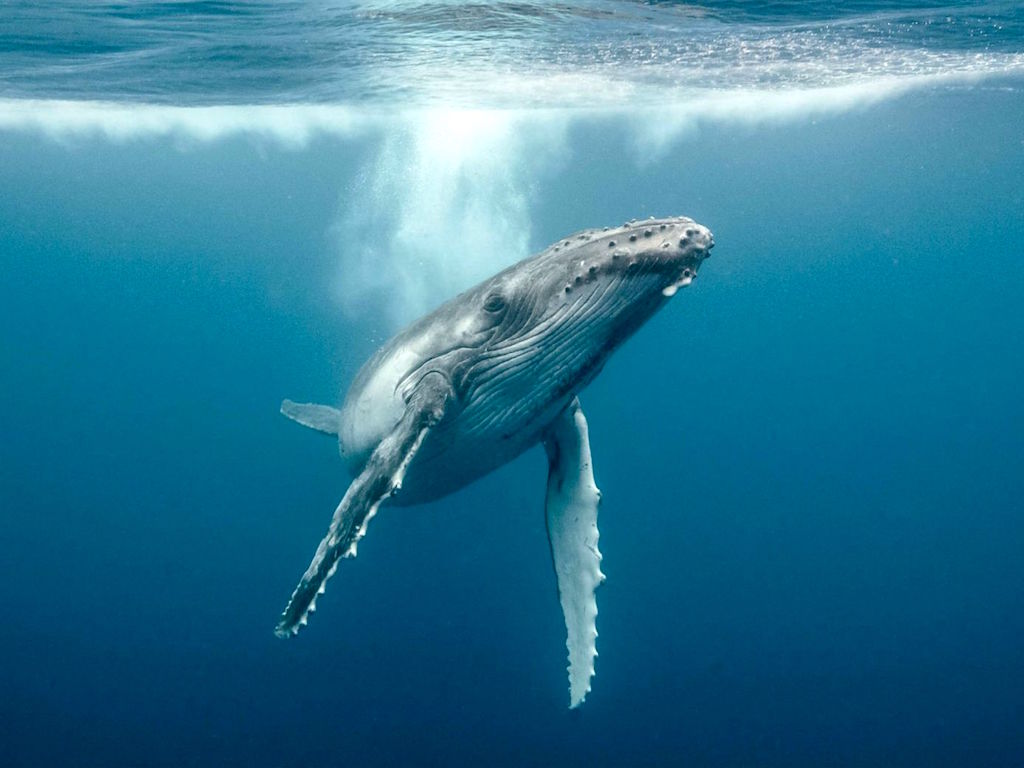2 Mins Read
In a study published by the International Monetary Fund (IMF), a team of marine biologists and economists have found that whales capture tonnes of carbon from the atmosphere. The carbon capture potential of these beautiful creatures – the largest and most intelligent inhabiting the planet’s oceans – is equivalent to US$1 trillion in economic value. This new piece of research reinforces previous studies that have spotlighted the positive cascading effects of whale conservation efforts on our overall environment. So saving the whales might just save us.
In order to reaffirm the importance of whales and whale conservation, an IMF study has just analysed the economic value derived from the carbon absorbing activities of whales. The study, which was led by a team of economists and marine biologists and published in a Finance & Development report, puts the price tag of whales at more than US$2 million per whale, amounting to over $1 trillion for the entire whale population.
Whales are able to absorb massive amounts of carbon emissions in their bodies. Over their entire lifespan, the average whale will take in 33 tonnes of carbon dioxide. For comparison, trees absorb around 48 pounds of carbon dioxide annually. Whales promote phytoplankton growth, which captures 40% of global carbon emissions and contributes half of the oxygen in our atmosphere. They encourage phytoplankton growth due to their movement, which pushes nutrients from the seabed to the surface, which feeds marine life. Waste substances from whales also contain iron and nitrogen, the compounds that phytoplankton feed on to grow, which further enables carbon absorption. When whales reach their end of life, they sink to the bottom of the ocean and take all the carbon that they have absorbed over the years with them.
“Even a 1% increase in phytoplankton productivity thanks to whale activity would capture millions of tons of additional CO2 a year, equivalent to the sudden appearance of two billion mature trees,” the report outlines.
These findings clearly show a connection between nature conservation and our very life on earth. According to recent United Nations IPCC estimates, we are in the midst of a climate crisis and on a trajectory towards destruction of human civilisation. If we are to make progress in tackling the most urgent global emergency, saving the whales needs to be added as one of the key solutions in addition to our existing efforts “not only for their intrinsic value but for their vital role…in keeping us alive too,” said UNEP wildlife expert Doreen Robinson.
Given that whales could have such an outsize impact on our climate crisis, the report argues that whale conservation should be integrated into the 2016 Paris Agreement. While the global whale population has been in recovery since commercial whaling ended in 1986 (with the exception of scientific research), their numbers still stand at a mere quarter of what they were before humans began hunting the animals on a mass scale.
Lead image courtesy of Unsplash.




